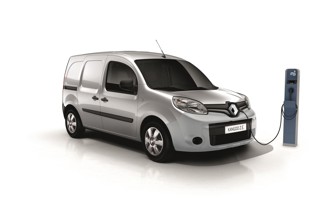The Government’s decision to cut the plug-in grant is a “retrograde” step and could delay fleet electrification, according to Harris Maxus.
The plug-in van and truck grants were unexpectedly cut last week by ministers, just as commercial operators begin deploying electric vehicles (EVs).
Plug-in van customers had been eligible for a 20% reduction on the vehicle purchase price, up to a maximum of £8,000.
However, fleets will now receive 35% of the purchase price for small vans, up to a maximum of £3,000 and 20% of the purchase price for a large van, up to a maximum of £6,000.
The plug-in truck grant, which had provided funding of up to £20,000, has been cut by £4,000. The new small truck grant (3.5-12 tonnes) covers 20% of the purchase price, up to a maximum of £16,000.
Mark Barrett, general manager at the UK dealer group, said: “This is a retrograde step by the Government that comes without any warning and at a time when incentives are vital to encouraging drivers and fleet buyers to make the switch to greener motoring.”
Maxus confirmed the specifications and pricing for its new electric van, the eDeliver 9, at the end of last year.
Based on the Deliver 9, the new EV, which is priced from £55,000, joins the brand’s smaller eDeliver 3 model and replaces the EV80.
Barrett believes that if a move to a zero-emission market is going to be a success, significant Government supports are needed given the current higher cost of EV vehicles.
“A lower EV grant has the potential to stall the good progress being made in meeting the targets and deadlines that have been set to achieve a zero-emission market,” he said.
“There is a growing range of EV vans in the market and many tenders in process waiting to be awarded.
“This move by Government will alter the dynamic of commercial fleet tenders for which price is a huge factor and may now result in fleet buyers delaying the move to electric.”
Barrett says that there should have been consultation with OEMs to ascertain what EVs are in production and the level of tenders or quotes that are in train using the old grant level.
“We all knew that the grants were never going to be forever and would, over time, be reduced,” he added. “However, the sector should have been given a lead in time of at least six months to allow us to prepare for the changes, address pending orders etc.”
The Government has also cut the plug-in car grant from £3,000 to £2,500 and excluded models that cost more than £35,000.
It says grants will no longer be available for higher-priced vehicles, “typically bought by drivers who can afford to switch without a subsidy from taxpayers”.
The plug-in vehicle grant scheme was cut in the Budget last year. It was originally introduced in 2011 and has supported the purchase of 285,000 vehicles to date.























Login to comment
Comments
No comments have been made yet.